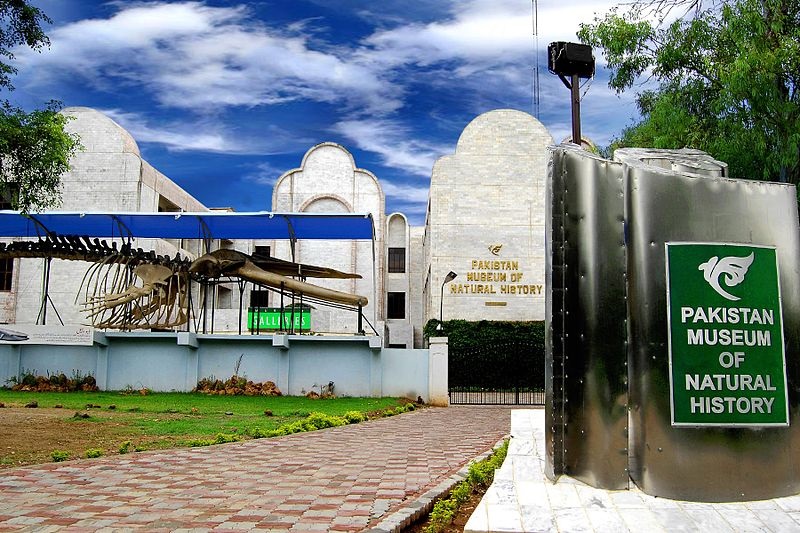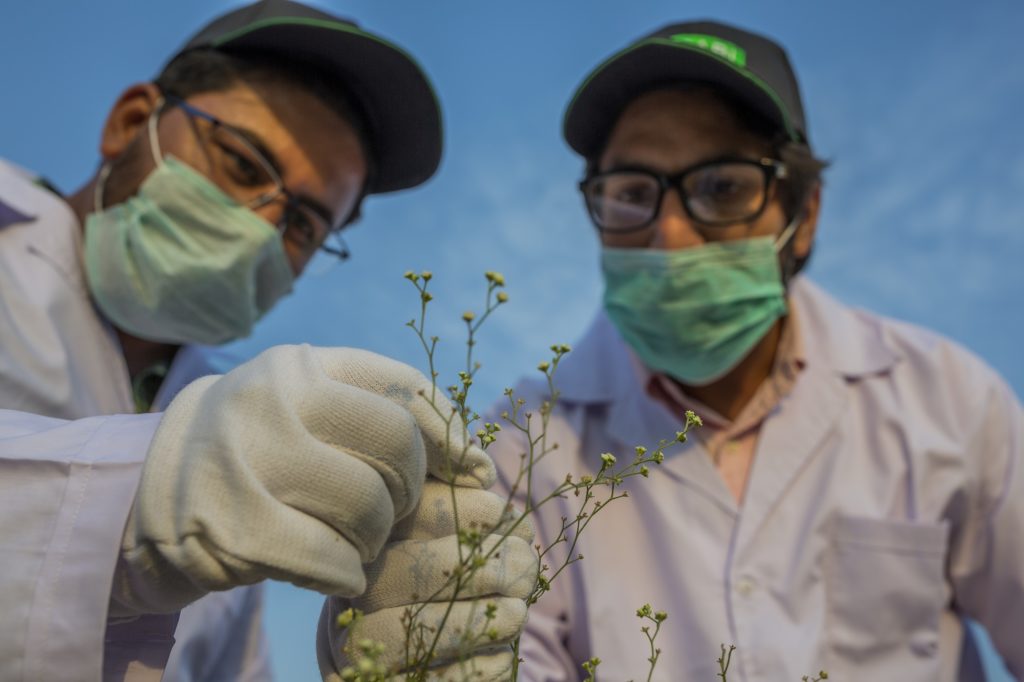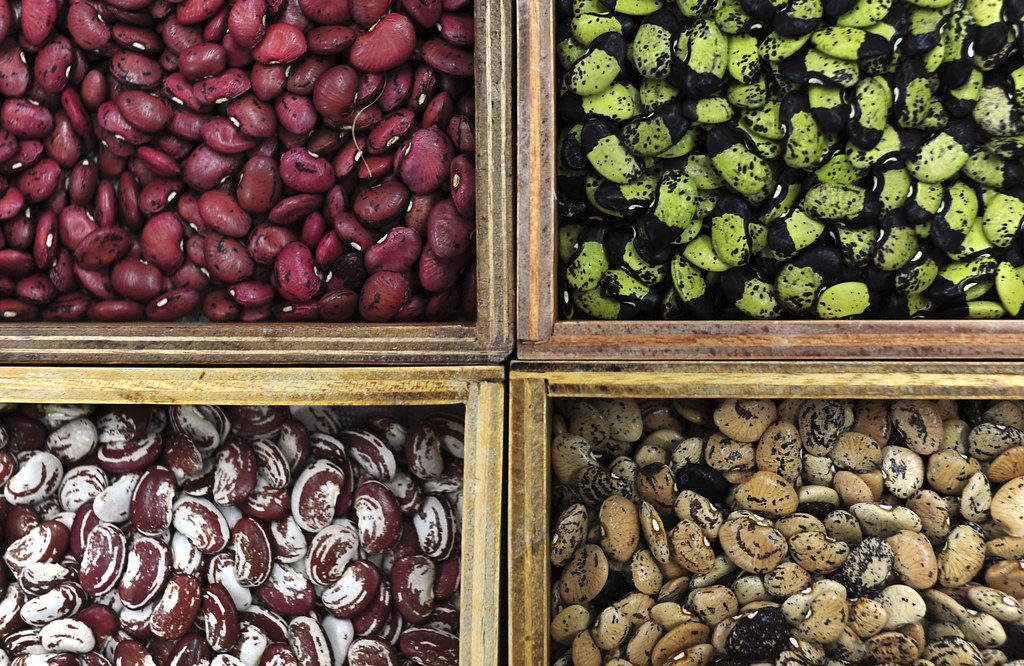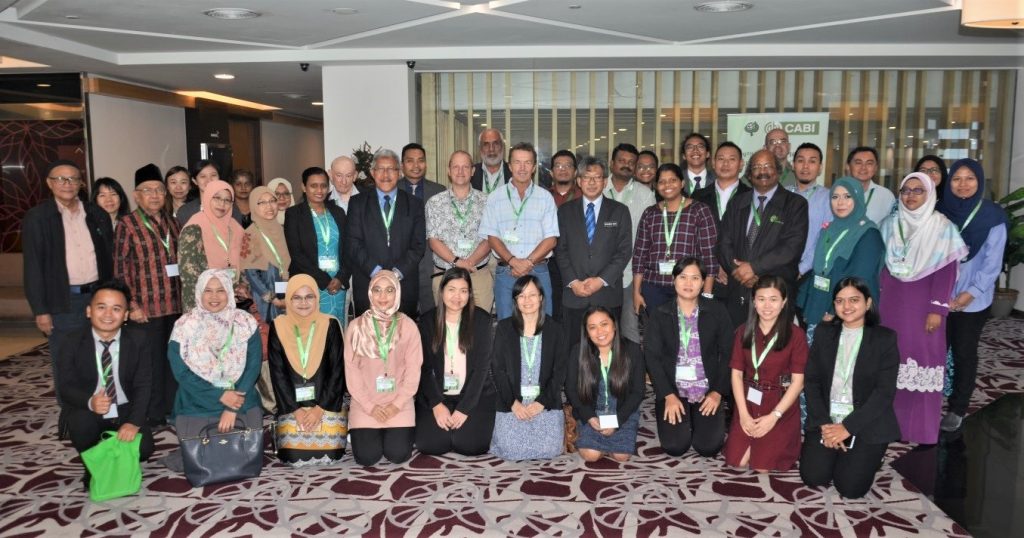‘Women can be good leaders and science managers’
In the week that the UN Decade of Family Farming was launched, Segenet Kelemu, the Director General of the International Centre of Insect Physiology and Ecology (icipe), tells CABI’s sister organisation SciDev.Net that women can be good leaders and science managers. In a candid interview, she reveals how she came from humble beginnings (having to…
“The warnings of impending doom are real but the timeframe is very much up for debate”
Did you know that more than 100 billion bananas are eaten every year in the world, making them the fourth most popular agricultural product? You might also be surprised to learn that Uganda has the highest average per capita consumption in the world, where residents eat an average of 226kgs of bananas per person per…
Climate-smart pest management holds the key to future global food security
CABI scientists Luca Heeb, Dr Emma Jenner and Dr Matthew Cock, have issued a stark reminder to the world – we must embrace climate-smart pest management (CSPM) if we are to ensure the food security of a global population predicted to reach 10 billion by 2050. In the paper ‘Climate-smart pest management: building resilience of…
CABI helps Pakistan Museum of Natural History showcase scourge of noxious parthenium weed
CABI in Pakistan is helping the Pakistan Museum of Natural History (PMNH) showcase the scourge of the noxious parthenium weed, otherwise known locally at ‘Gajar Booti’, to members of the public visiting its Bio Gallery exhibit. Parthenium is regarded as one of the major threats to native species, environment and ecosystems in more than 48…
App-based agriculture for a tech-savvy farmer
Agriculture in Sub-Saharan Africa is undergoing a digital revolution bought about through the advancement and increasing availability of mobile technologies. Improved affordability has placed mobile devices in the hands of more African’s than ever before, with 444 million subscribed users in 2017. Take Tanzania for example where the average cost of mobile phones has fallen…
Guest blog: ‘Keeping in mind the real use of our research’
In this guest blog, Dr Haseeb Md. Irfanullah discusses the findings of a recent workshop he was a rapporteur of in Bangladesh on the potential impact on policy and practice of agricultural research in the country. A research system is basically made up of four components: accessing, conducting, communicating, and utilizing research. While we often…
In the frame: fighting the scourge of parthenium weed in Pakistan
CABI has recently shared its expertise in a new parthenium evidence note which highlights a list of recommendations to fight the highly-invasive weed can cause severe allergic reactions in humans and livestock, may harbour malaria-carrying mosquitoes, displace native plant species and reduce pasture carrying capacities by as much as 80% to 90%. In this picture…
Photo focus on fighting invasive plants on Socotra Natural World Heritage site
In this photo special we turn the spotlight on members of the community in the Socotra Archipelago, Yemen – including Bushera Ahmed Abdulla pictured above – who are working together with invasive species experts from CABI to help rid the region of devastating Invasive Alien Species (IAS) including common pest pear Opuntia stricta and prosopis. Dr Arne Witt, CABI’s…
How countries around the world are leveraging agriculture to improve nutrition
By Shenggen Fan, Sivan Yosef, and Rajul Pandya-Lorch This blog post is the third in a 3-part series accompanying the release of the book Agriculture for Improved Nutrition: Seizing the Momentum, co-edited by Shenggen Fan, Sivan Yosef, and Rajul Pandya-Lorch (co-published by CABI Publishing and IFPRI). The book was launched at a Feb. 28 event…
IOBC workshop focuses on the latest research in the biological control of invasive weeds
By Chan Hong Twu, scientist at CABI Southeast Asia in Selangor, Malaysia CABI Southeast Asia was proud to host the 9th International Workshop on Biological Control and Management of Eupatorieae and other Invasive Weeds where the very latest research on invasive weeds and their biological control agents were shared amongst delegates from 13 countries including…








